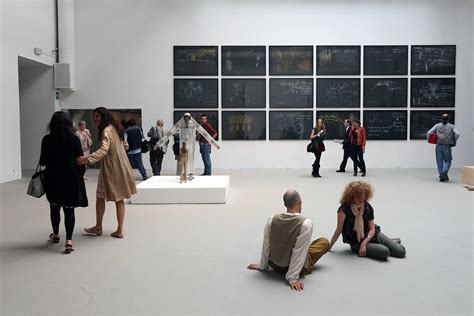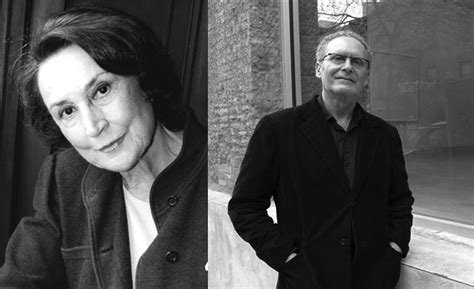A Quote by Werner Heisenberg
The structure underlying the phenomena is not given by material objects like the atoms of Democritus but by the form that determines the material objects. The Ideas are more fundamental than the objects.
Quote Topics
Related Quotes
My pictures are devoid of objects; like objects, they are themselves objects. This means that they are devoid of content, significance or meaning, like objects or trees, animals, people or days, all of which are there without a reason, without a function and without a purpose. This is the quality that counts. Even so, there are good and bad pictures.
Since man does not create physical matter, those who handle material objects in the production process are not producers in that sense. Economic benefits result from the transformation of matter in form, location, or availability (intellectually or temporally). It is these transformations that create economic benefits valued by consumers, and whoever arranges such transformations contributes to the value of things, whether his hands actually come into contact with physical objects or not.
Our culture is hung up on and overemphasises what can be derived from material objects. I think this is something quite new, over the past 200 or 300 years - that life has become about accumulating material wealth. The 21st century is not about accumulating material wealth like the 20th century. It's already eroding.
There is a popular superstition that "realism" asserts itself in the cataloguing of a great number of material objects, in explaining mechanical processes, the methods of operating manufactories and trades, and in minutely and unsparingly describing physical sensations. But is not realism, more than it is anything else, an attitude of mind on the part of the writer toward his material, a vague indication of the sympathy and candour with which he accepts, rather than chooses, his theme?
The identifying personal association with objects, which are not personal, is an important modern experience - our real association, the strands of our feelings about the objects that surround us. It's also because they are so familiar, we don't think of them as important in the world, but actually they are the world. We are living in a very material world.




































